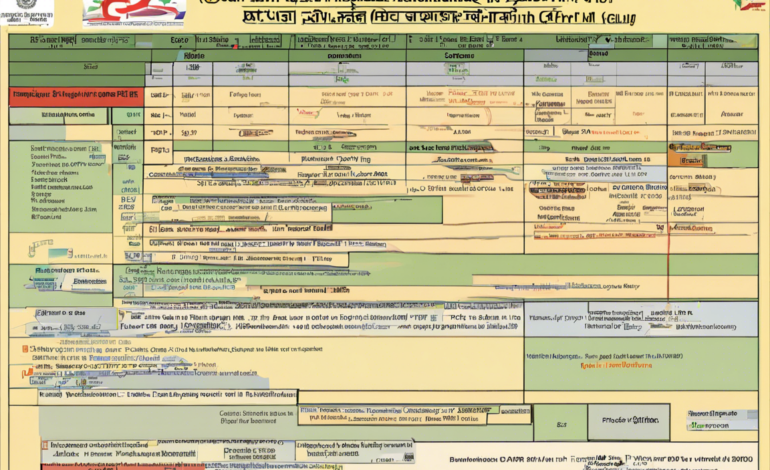The Cost of Air Quality
Air quality is a crucial aspect of our environment that directly impacts both our health and the economy. Poor air quality can lead to a wide range of health issues, including respiratory problems, cardiovascular diseases, and even premature death. In addition to its toll on public health, poor air quality also has significant economic implications, costing billions of dollars annually in healthcare expenses, lost productivity, and environmental damage.
The Health Impacts of Poor Air Quality
Respiratory Issues
Air pollution, particularly high levels of particulate matter and ozone, can aggravate respiratory conditions such as asthma, chronic obstructive pulmonary disease (COPD), and bronchitis. It can also increase the risk of respiratory infections.
Cardiovascular Diseases
Studies have shown that exposure to air pollution is linked to an increased risk of heart attacks, strokes, and other cardiovascular diseases. Fine particulate matter can enter the bloodstream and cause inflammation, leading to the development of atherosclerosis and other heart-related issues.
Premature Death
Long-term exposure to poor air quality has been associated with a higher risk of premature death. The World Health Organization (WHO) estimates that air pollution contributes to millions of premature deaths worldwide each year.
The Economic Costs of Poor Air Quality
Healthcare Expenses
Treating air pollution-related health conditions incurs significant healthcare costs. Individuals with respiratory and cardiovascular diseases require more frequent medical visits, medications, and hospitalizations, placing a strain on healthcare systems and driving up expenses for both patients and governments.
Lost Productivity
Poor air quality can reduce productivity in multiple ways. Workers who are sick or experiencing health issues due to air pollution are likely to take more sick days, leading to decreased productivity levels. Additionally, air pollution can impair cognitive function and decision-making, further impacting work efficiency.
Environmental Damage
Beyond its effects on human health and productivity, poor air quality also harms the environment. Pollutants released into the air contribute to climate change, acid rain, and the degradation of ecosystems. These environmental impacts have far-reaching consequences and require costly mitigation efforts.
The Benefits of Improving Air Quality
Healthier Population
Improving air quality leads to a healthier population with a reduced burden of respiratory and cardiovascular diseases. By implementing policies and technologies to reduce air pollution, governments can enhance public health outcomes and improve overall quality of life.
Economic Savings
Investing in measures to improve air quality can result in significant economic savings in the long run. By preventing air pollution-related health issues and reducing healthcare expenses, countries can allocate resources more efficiently and spur economic growth.
Sustainable Development
Enhancing air quality aligns with the goal of sustainable development, which seeks to meet the needs of the present without compromising the ability of future generations to meet their own needs. Clean air is essential for a sustainable future and plays a key role in achieving environmental, social, and economic well-being.
Frequently Asked Questions (FAQs)
1. What are the main sources of air pollution?
The main sources of air pollution include vehicle emissions, industrial activities, power plants, agricultural practices, and residential heating and cooking using solid fuels.
2. How does air pollution affect vulnerable populations?
Vulnerable populations such as children, the elderly, and individuals with preexisting health conditions are more susceptible to the health impacts of air pollution due to their weakened immune systems and physiological vulnerabilities.
3. What are some effective strategies for improving air quality?
Effective strategies for improving air quality include transitioning to renewable energy sources, implementing emissions regulations for vehicles and industries, promoting public transportation, and encouraging sustainable urban planning.
4. How can individuals protect themselves from poor air quality?
Individuals can protect themselves from poor air quality by monitoring air quality indexes, avoiding outdoor activities during high pollution days, using air purifiers indoors, and wearing masks in heavily polluted environments.
5. What role can businesses play in reducing air pollution?
Businesses can reduce air pollution by adopting sustainable practices, investing in clean technologies, optimizing energy use, promoting telecommuting options for employees, and participating in voluntary emissions reduction programs.
As we continue to face the challenges posed by poor air quality, it is essential to prioritize efforts to mitigate air pollution, protect public health, and foster sustainable development. By recognizing the costs of air quality and the benefits of improvement, we can work towards creating a cleaner, healthier, and more prosperous future for all.





